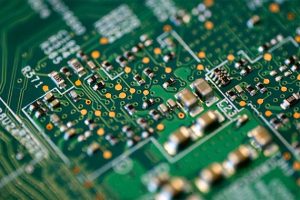
Master of Science in Computer Engineering
With the Master of Science in Computer Engineering, prepare for advanced roles in computing, computer architecture and computer engineering or work toward a career in academia and research.

Bachelor of Science in Computer Science
Be at the forefront of innovation and technological advancement around robotics, computing systems, artificial intelligence, hardware and software. Tackle complex problems and implement solutions that change our daily lives. Combine foundational coursework with technical applications through undergraduate research, collaborating with other engineering departments and programs around campus.

Bachelor of Science in Computer Engineering
Help design and implement the next-generation of computing architecture and components. Gain a foundational understanding alongside technical skills to work with the systems of tomorrow. Conduct undergraduate research in areas such as autonomous systems, edge computing and artificial intelligence.

Master of Engineering
The Master of Engineering degree is designed to be a terminal degree for entering master students interested in a terminal master’s degree, who have a demonstrated need for a professional, non-research degree in engineering, and have an academic interest in the department.
Ph.D. in Biological Engineering
Develop highly specialized skills in a subdivision of bioengineering and prepare for a rewarding career in academia and research.
Ph.D. in Chemical Engineering
Earn a PhD in Chemical Engineering and prepare for a career in academia and research, or for high-paying leadership roles in industry.
Master of Science in Chemical Engineering
Earn a Master of Science in Chemical Engineering to expand your career options and sustainably increase your lifetime earning potential. Open new career pathways to industry, national laboratories and academia.
Master of Science in Biological Engineering
Earn a Master of Science in Biological Engineering to expand your career options and sustainably increase your lifetime earning potential. Apply scientific and engineering principles to develop products systems and processes to improve lives.
Bachelor of Science in Chemical Engineering
Use engineering, math, physics and chemistry to learn to design materials and products through chemical processes.

Bachelor of Science in Electrical Engineering
Help find solutions to global energy problems. You’ll learn about electrical power generation, communication systems and instrumentation. Explore circuit and microprocessor design, and gain an understanding of electromagnetic fields. Prepare to work with electrical systems and equipment.